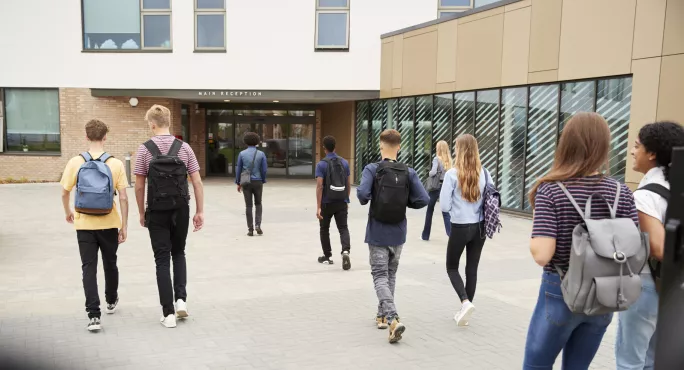- Home
- Coronavirus: ‘Colleges need 3 things from government’
Coronavirus: ‘Colleges need 3 things from government’

The return of lockdown has generated far more political noise than the first time around. Sadly, that noise tends to prevent the evidenced and calm conversations we should be having about how best to balance risks and priorities.
What we get all too often is a polarised argument that deals with absolutes and misses the nuances and the trade-offs that should be helping to determine the best course of action.
Keeping everything open or closing it all down are not the only options for education settings, as colleges have successfully shown by steering a safe and prudent approach of blending face-to-face with online learning.
The onset of a second lockdown will not change that approach because colleges want students to carry on their learning this year. The government clearly does, too, given the prime minister’s statement on Saturday.
Coronavirus: Keeping colleges open ‘gambles with the nation’s health’
More: Free travel for under-18s saved in TfL bailout deal
Skills devolution: Give regions more for Covid recovery
The first lockdown saw colleges closing to all but the most vulnerable students. Most students were learning online 100 per cent of the time and colleges worked hard to make sure that every student was supported, had online access and could carry on. But we know students found it difficult and that, for most, the experience was not as good as a blended approach. Education and training are intrinsically social experiences and the isolation and loneliness of learning at home is a real barrier to achievement.
Coronavirus: Give colleges more support
On top of that, there is a big digital divide, with too many disadvantaged students not having suitable digital devices or internet access, as well as the quiet space to be able to study at home. The government’s efforts to address that seem to be falling short of the need, despite more being promised soon.
Face-to-face learning does, of course, bring risks. We know that any mixing outside of households will heighten the chances of the virus spreading and that there are some groups who are more vulnerable and who need shielding. It is those risks that the government is asking colleges, schools and universities to balance with the desire to support learning. Colleges are focused on getting that balance right so that learning can continue safely and effectively. They are making judgements in light of the advice from Public Health England and the government, as well as the discussions with staff and students.
Now, colleges need Department for Education reassurance that they will be fully supported to make the best decisions for their staff and students on the right balance of face-to-face and online learning. That reassurance needs to come this week to support those decisions, but they also need three more things from government.
Firstly, they need funding to cover their additional costs to ensure safety. Our members are already reporting sums of £250,000 to £500,000 have been spent in the past six months and it’s likely that more will be spent in the remainder of the academic year on personal protective equipment, cleaning, materials, stewarding, extra staffing and so on.
Secondly, colleges are deeply concerned about how disruption to teaching and learning will be taken into account in next year’s exams and assessments. Part of the disruption will be reduced if funding for digital devices arrives very soon, but decisions about next year’s exams and assessments also need urgently to be communicated. Students want to know how it will work, how disruptions will be taken into account, how next year’s results will compare with last summer’s and what the contingencies will be for those who might be unable to sit exams or undergo assessments next summer.
Finally, colleges need more assurances from DfE about the security of their core funding because, at the moment, there is too much uncertainty about whether some of those funds will be clawed back for so-called under-performance in this most exceptional academic year. It’s not fair on college leaders to have to deal with so much insecurity of income whilst having to make tough judgements about student (and staff) welfare, wellbeing and opportunities to learn.
All of this is eminently achievable. The DfE can deliver on it with the political will and some manoeuvring by officials with their counterparts in government. The prize is clear - more students feeling secure, supported and safe, and looking forward with some certainty and hope.
David Hughes is chief executive of the Association of Colleges
Keep reading for just £1 per month
You've reached your limit of free articles this month. Subscribe for £1 per month for three months and get:
- Unlimited access to all Tes magazine content
- Exclusive subscriber-only stories
- Award-winning email newsletters



